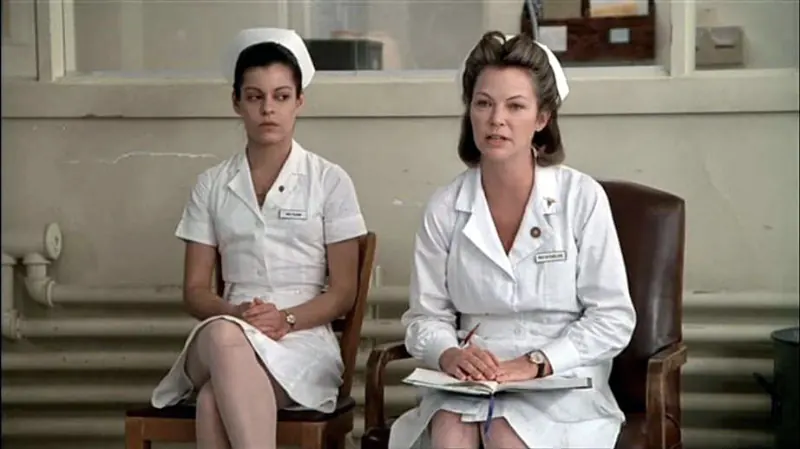Nurse Ratched's Pivotal Intervention
Today One Flew Over The Cuckoo's Nest is considered somewhat of an art movie. The adaptation of Ken Kesey's novel plays mostly in the interior of a mental asylum, has an ensemble cast and is heavily dialogue based. Not the type of movie you flick on your player on a Saturday night.
Yet when the picture was released, it immediately skyrocketed to become the seventh highest grossing film of all time, a spot that is now taken by Toy Story 3; or The Dark Knight Rises if you're looking at US domestic box office. Cuckoo's Nest won Michael Douglas a first Academy Award as a producer, it made him a very rich man but it also gave an enormous boost to the acting careers of a whole string of talent, including Danny De Vito and Christopher "The Doc" Lloyd.
It is a phenomenal film. If you haven't seen it yet, do yourself an immense favour and watch it. To my taste, not a single movie in today's top 10 films has an emotionally powerful climax even close to Cuckoo's Nest (except perhaps Toy Story 3).
ADAPTATION
Of all novel adaptations, this is one of the most successful and definitely my own favorite, in that it is sufficiently different from the original - and the diversion from the book works wonderfully. The book is told from the perspective of the Chief and because this character is mute, this obviously posed a significant problem for the screenwriters. The film is almost exclusively told from the perspective of McMurphy, played by Jack Nicholson but for this Movie Moment, we look at a very rare - and relatively brief - scene where the main character is not present.
THE STARS
After a quick setup that plays with great realism, the scene is stolen by Louise Fletcher who won the Academy Award for best lead actress. Although Fletcher played the role brilliantly, I am convinced that often lead actors receive awards that are really deserved by the real stars: the screenwriters. Fortunately in this case, the outstanding adaptation of Ken Kesey’s novel was also awarded with the Academy Award for best adapted screenplay.

THE SCENE: I THINK WE CAN HELP HIM
The management of the asylum discusses the case of McMurphy and all agree that he is not crazy but dangerous and should therefore return to the work farm. However, McMurphy’s fate is sealed when Nurse Ratched recommends to ‘keep him on the ward’, which means McMurphy has lost his freedom for good. It is a great example of Dramatic Irony, whereby the audience knows more than the (here: main) character. As a result of the scene, we have a massive reversal of the main character’s goal. Until this point he schemed to avoid the work farm and stay in the asylum; now he’ll have to fight to get out.
DRAMA BY CONTRAST
This movie moment is embedded in two scenes that contrast with the rest of the film in that they’re set exterior. Director Milos Forman considered cutting the fishing trip sequence, which precedes our scene, but found the movie felt longer without it. It offers a welcome change of scenery and gives a real sense that McMurphy IS in fact free. The basket ball scene following the mid point is bitter in its irony as we see McMurphy having fun with his fellow patients on the court… but he doesn’t realize what we know: he is now ‘one of them’.
Karel Segers
Karel Segers wrote his first produced screenplay at age 17. Today he is a story analyst, script editor and producer with experience in rights acquisition, script development and production. His
screenwriting classes have trained writers in Australia, Europe, Asia and the Middle East, and his clients include international award-winning filmmakers as well as three Academy Award nominees.
Karel is the founder of
The Story Department and he ranks in the world's Top 10 of most influential people for screenwriting on Twitter.